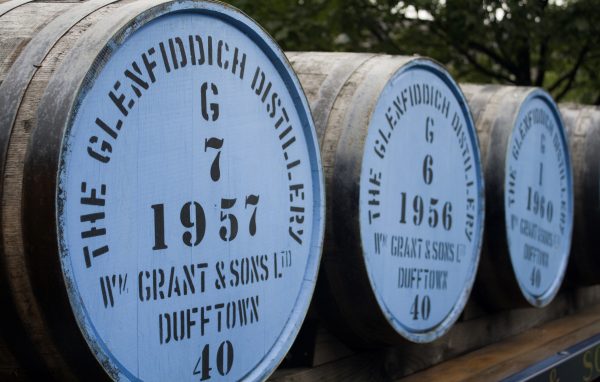The potential impact Brexit on Scottish farmers and agri co-ops has been discussed at a conference organised by the Scottish Agricultural Organisation Society (SAOS).
The session, which gathered more than 100 agri-c0-op directors, looked at issues such as export markets, migrant labour, tariffs and the implications of leaving the Common Agricultural Policy (CAP). Speakers said these issues created opportunities as well as uncertainty.
James Withers of Scotland Food and Drink – a non-proft organisation which helps food and drink firms increase profitability – sounded an upbeat note and stressed the value of co-operation.
“We are in control of our ambition, our vision and our strategy,” he said. “We control our brand and our market development activities. And we control the way we work together to achieve our aims.
“Every positive development that happens in food and drink stems from collaboration and co-operation,” he told the 100 directors of Scotland’s agri co-ops.
But he warned that while the Scottish brand enjoyed a strong global reputation, it depended too few markets around the world – with the exception of Scotch whisky.

Around 80% of Scottish food exports go to Europe, and only 7% each to Asia and North America. Mr Withers suggested a three-market approach targeting the UK, EU and global markets, using market intelligence, supply chain collaboration, innovation and skills.
Exports were also highlighted by Tom Hindt, chief strategy officer for agriculture and trade at the Agriculture and Horticulture Development Board (AHDB).
He said more than half the UK’s export value was to the EU – and the prime minister’s speech last month on Brexit negotiating objectives meant: “The landing zone is clearer, but there is still massive uncertainty.”
Related: Fighting for Fairtrade workers as Britain prepares for Brexit
Mr Hindt warned a free trade agreement outside the single market or customs union would take more than two years and an interim agreement would be needed. Without a free trade agreement, the UK would pay common external tariffs to export to the EU.
The UK could apply its own tariffs on imports, he said but more than half the total food consumed comes from abroad – and jobs and household income depend on commodity imports.
And a loss of export markets would increase supplies on the UK market, which would create the need for greater processing capacity for produce such as sheep meat.
Another concern for farmers could be migrant labour – 38% of the UK workforce in food manufacture, 27% in food and beverage service activities and 22% in scientific research and development.
However, Mr Hindt thinks there are “significant global opportunities” for the UK’s agri sector, if it can compete in areas with a growing, prosperous middle class, such as the Asia-Pacific region.
He said agricultural policy needed to build resistance in the face of greater competition and declining financial support – particularly because of farmer’s dependence on direct payments through CAP. He said greater resiliance was of “critical” importance and co-ops and collaboration could have a role to play in this.

James Graham, chief executive of SAOS, said: “To connect Scotland’s farmers with food and drink manufacturers more effectively, we need much closer alignment in future policies, strategies and resources.”
SAOS, which is owned by around 60 member co-ops and specialises in the joint venture among farmers, growers, rural businesses and supply chains, has submitted a series of proposals to the Scottish and UK governments suggesting how this can be done.
The paper suggests deepening policy alignment and action via Scotland Food and Drink, a legal right for farmers to negotiate collectively with scale buyers, and removing competition law ambiguities relating to the legality of co-operative selling.
In addition, SAOS proposes giving access to grants for innovation via producer organisations and co-ops across all sectors, investing in expert knowledge and facilitation for farmer co-operation and supply chain improvement, and investment in rural infrastructure, connectivity and communities.